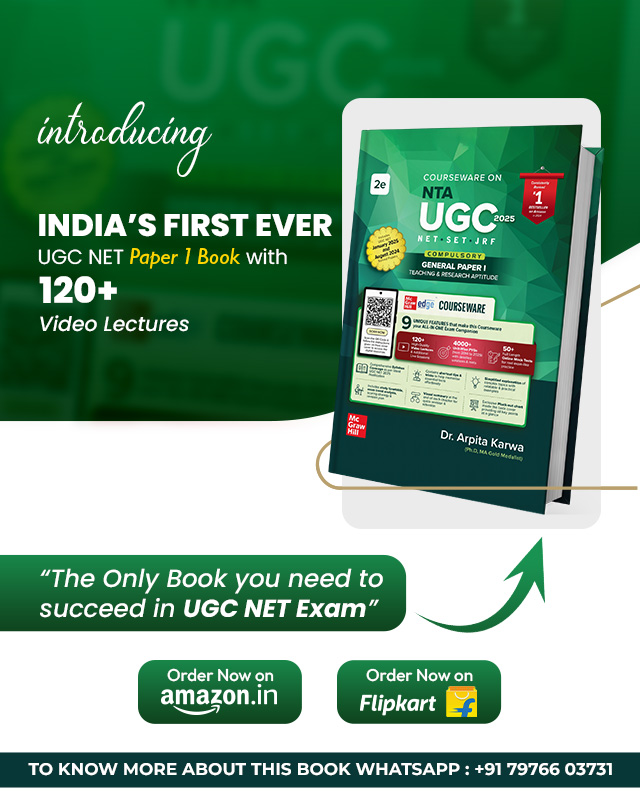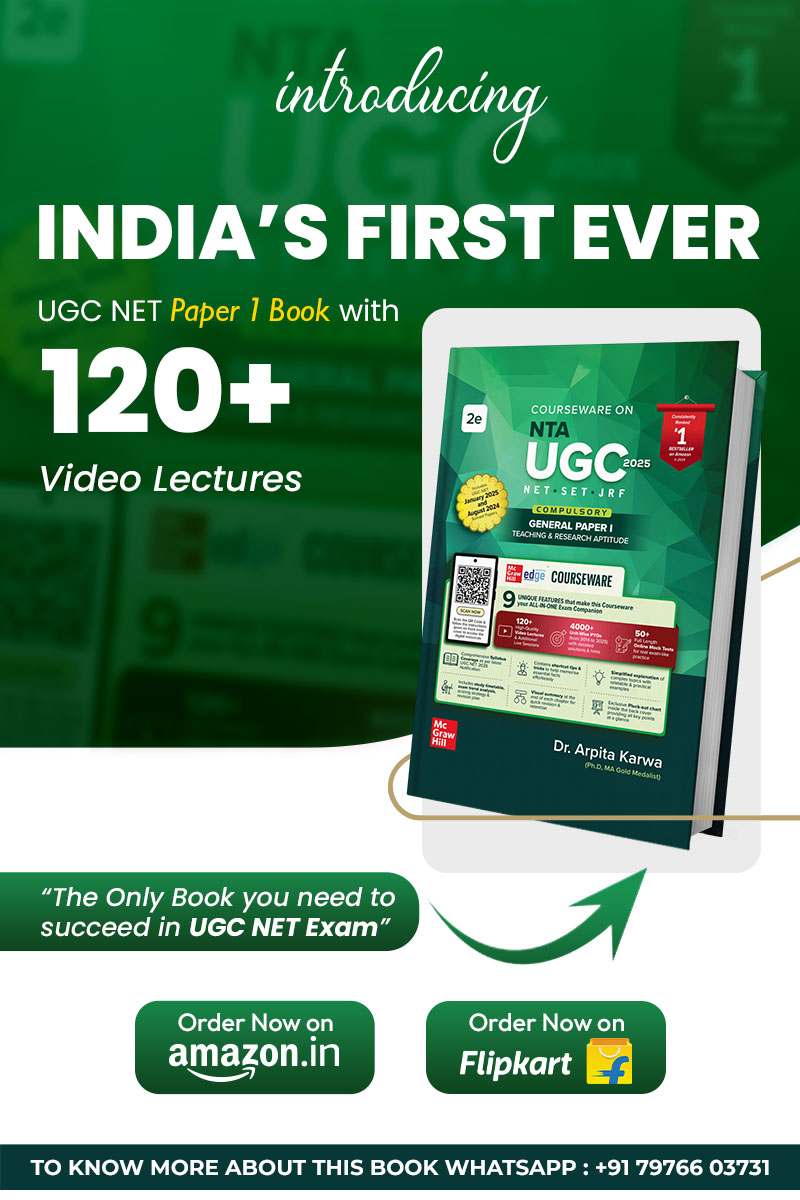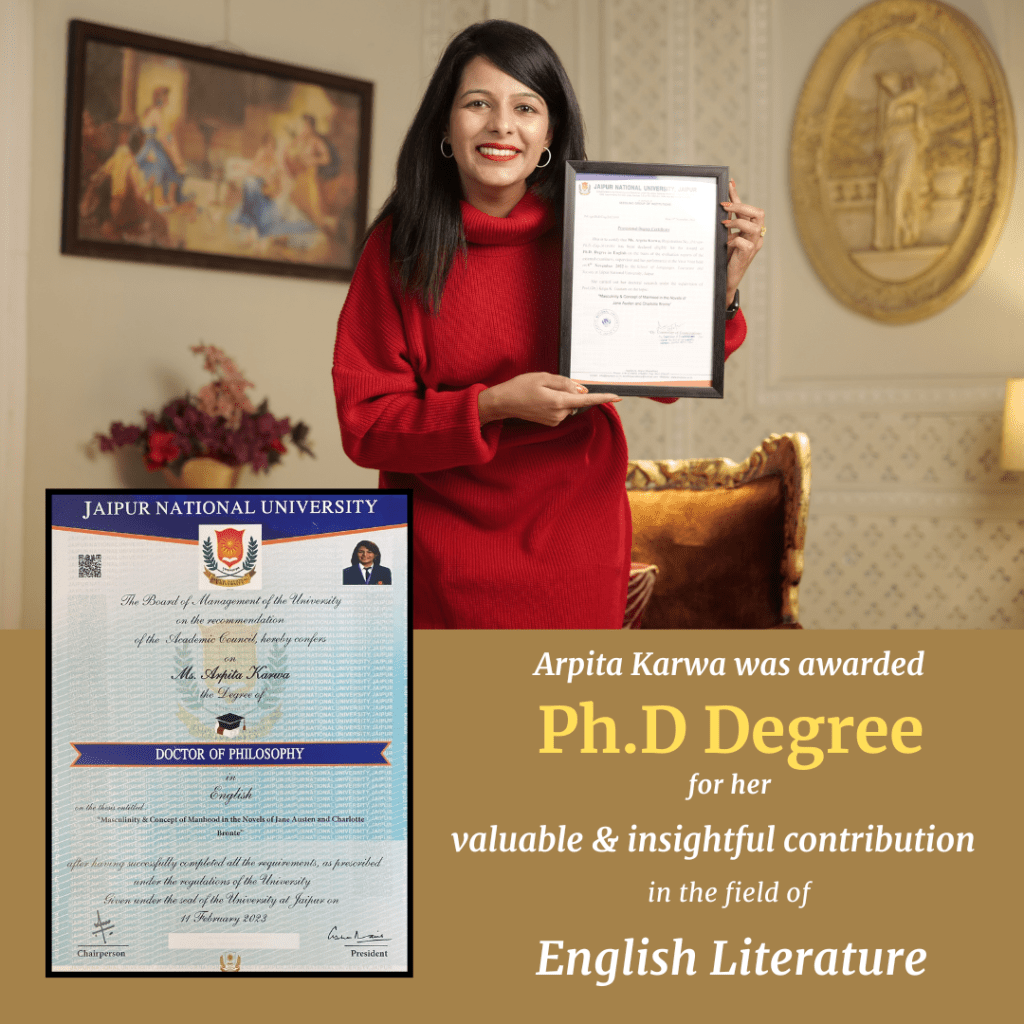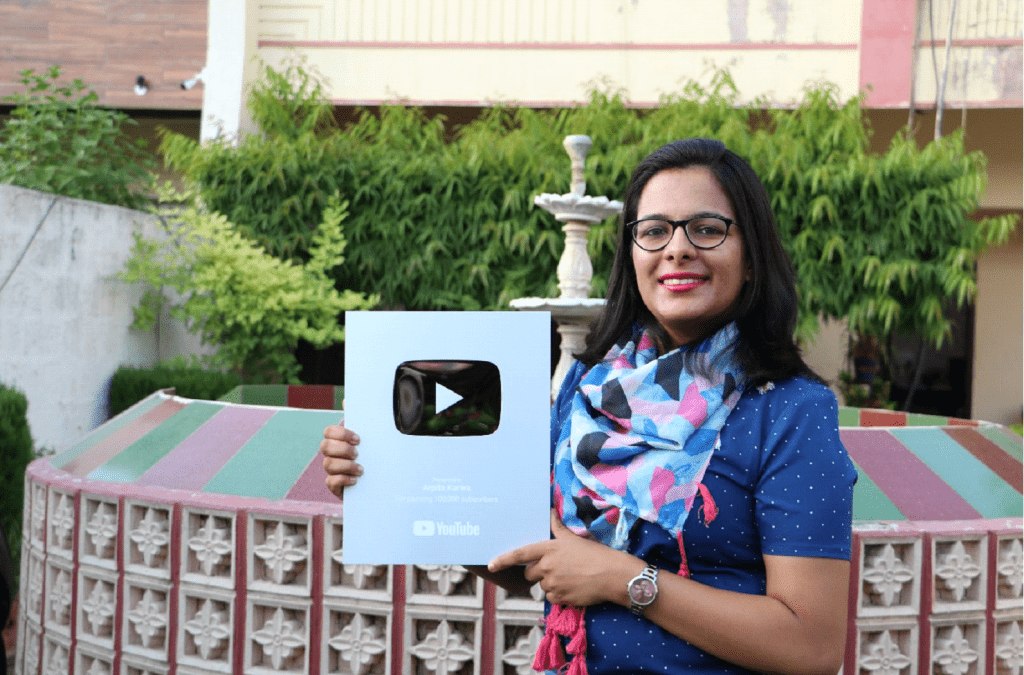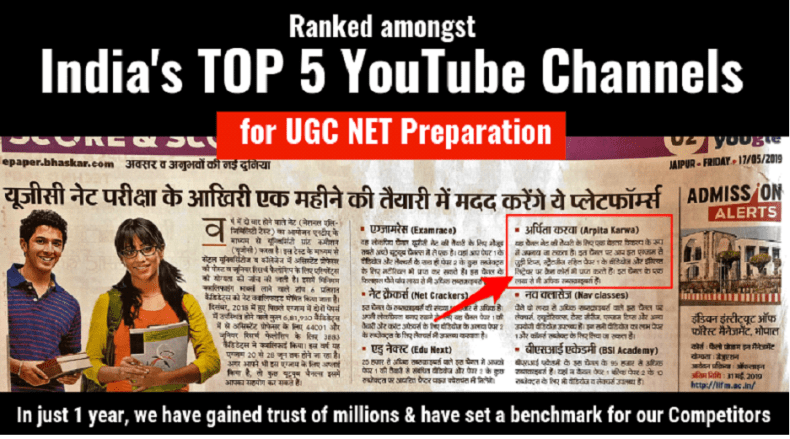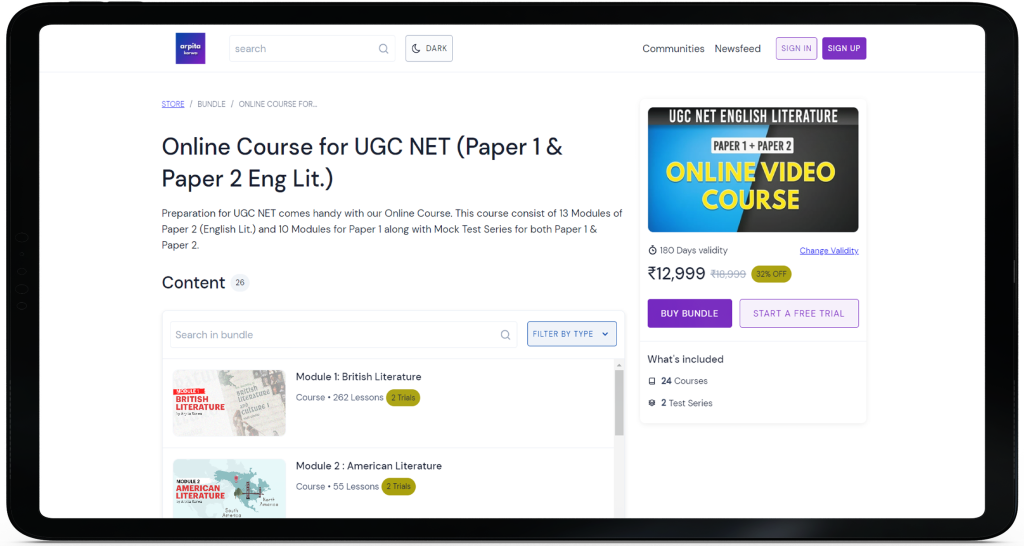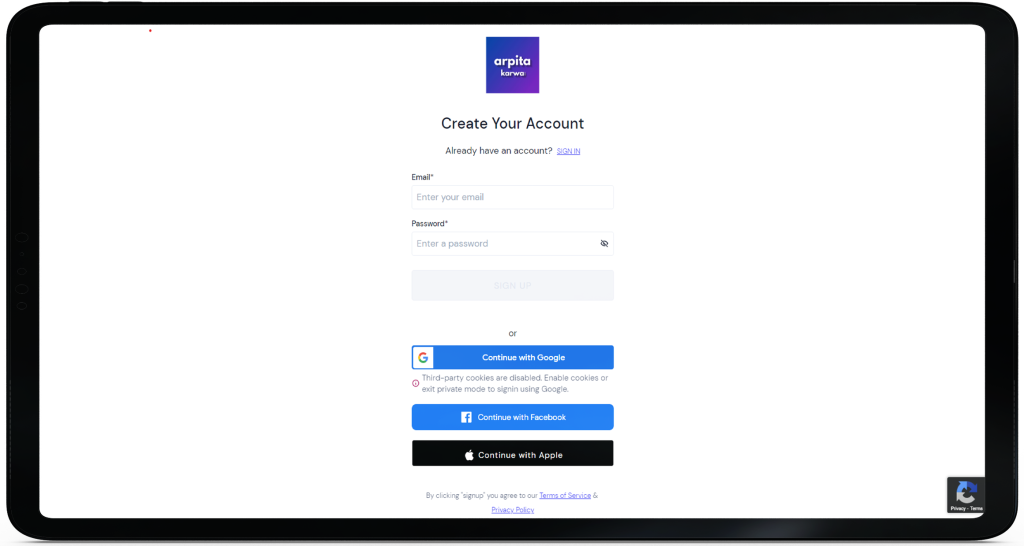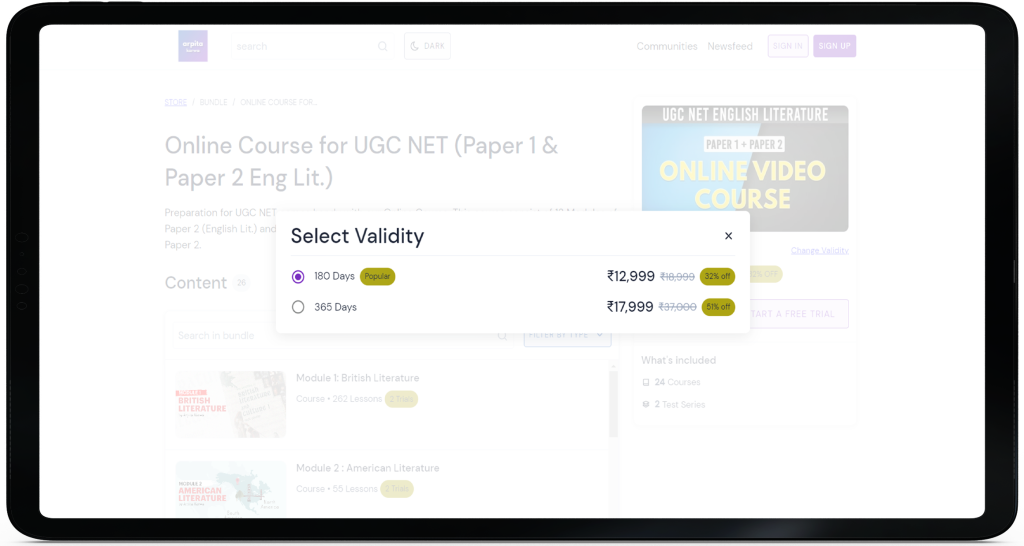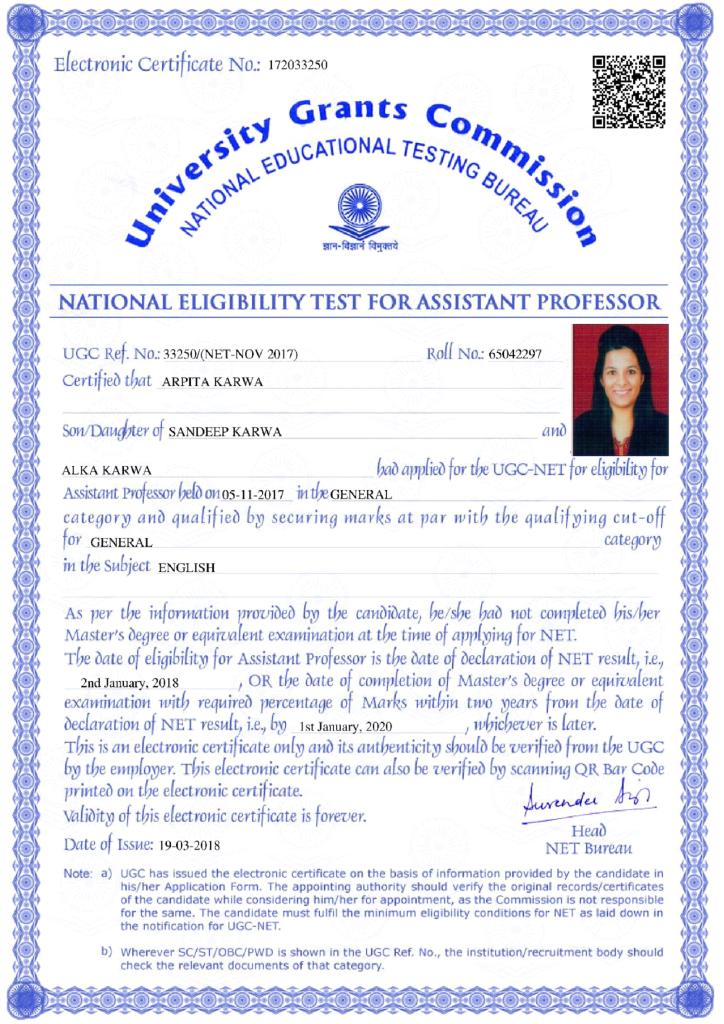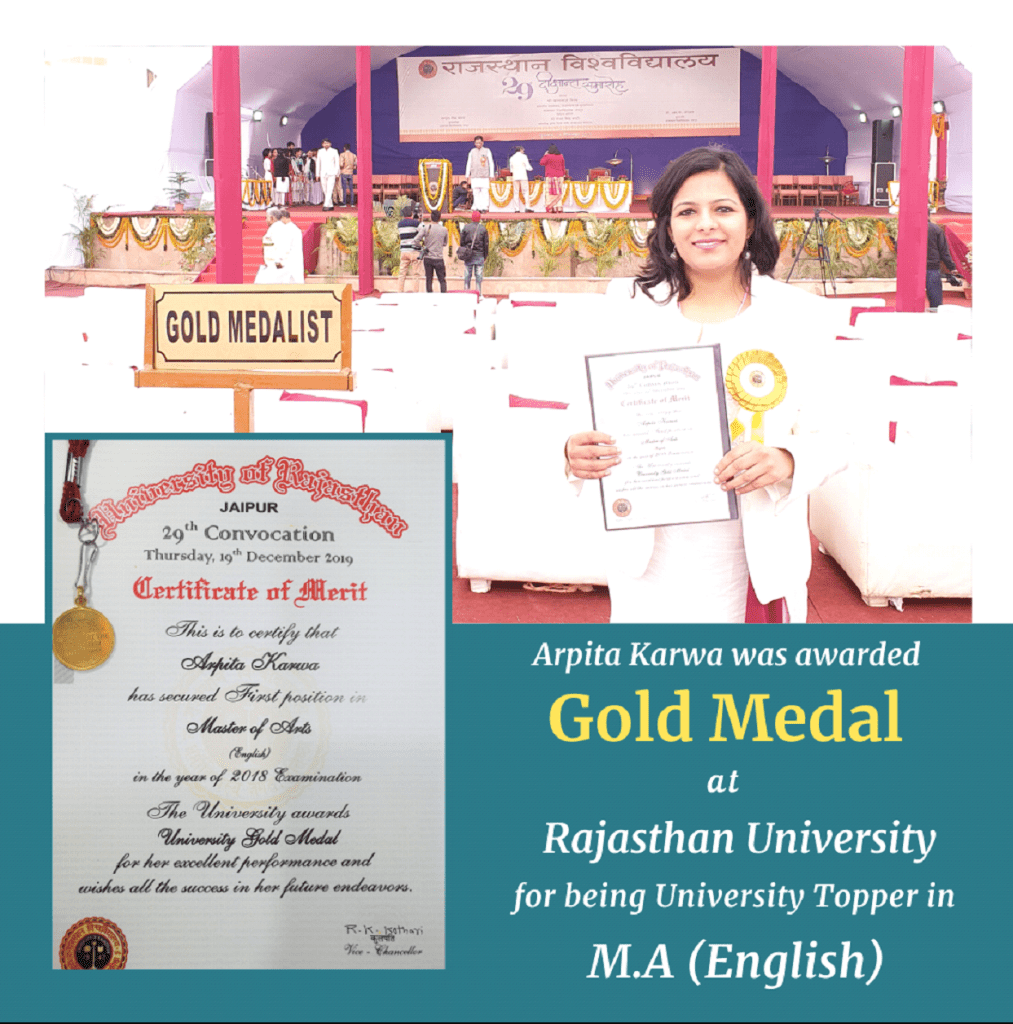June 2024: Paper 1 (Conduced on 18th June 2024 Morning Shift)
June 19, 2024 2024-06-21 18:59June 2024: Paper 1 (Conduced on 18th June 2024 Morning Shift)
June 2024: Paper 1 (Conduced on 18th June 2024 Morning Shift)
PAPER – I (GENERAL PAPER)
The following table shows the percentage (%) distribution of the number of readers of an IT magazine in the years 2019 and 2023, among the six different cities A-F. Based on the data in the table, answer the questions that follow.
City | (2019) | (2023) |
A | 10% | 15% |
B | 14% | 16% |
C | 17% | 28% |
D | 9% | 10% |
E | 24% | 26% |
F | 26% | 22% |
Q1: If the total number of readers from all the six cities A-F together in the year 2023 was 50,000, then the number of readers was more than 7,400 in exactly cities in the same year.
a. 2
b. 3
c. 4
d. 5
Answer: c. 4
Q2: If the ratio of the number of readers from City-A in the year 2019 to that in 2023 was 2: 5, then what was the ratio of the number of readers from all the six cities together in the year 2019 to that in 2023?
a. 3:5
b. 4:5
c. 4:9
d. 2:5
Answer: c. 4:9
Q3: If the total number of readers from all the six cities A-F together in the years 2019 and 2023 were 4.3 lakh and 5.7 lakh, respectively, then what was the difference between the total number of readers from City-B and City-C together in the years 2019 and 2023?
a. 1.175 lakh
b. 1.415 lakh
c. 1.625 lakh
d. 1.596 lakh
Answer: a.
Q4: If the number of readers from the City-D in the year 2019 and 2023 were 77,400 and 1,14,000 respectively, then what is the difference between the number of readers from City-F in the year 2019 and that in 2023?
a. 24,800
b. 27,200
c. 28,400
d. 33,600
Answer: b.
Q5: If the number of readers from City-C in the year 2019 and that from City-E in the year 2023 were 73,100 and 51,300, respectively, then the number of readers from City-B in the year 2023 was approximately % more than that in 2019.
a. 53.7
b. 50.3
c. 52.8
d. 51.5
Answer: b.
Q6. What is the base-10 equivalent of the base-4 number 3013?
a. 182
b. 196
c. 199
d. 190
Answer: c
Q7. Which of the following are the subdivisions of Implicit (Unconscious) memory?
a. Priming
b. Classical conditioning effects
c. Episodic Memory
d. Semantic Memory
e. Procedural Memory
Choose the most appropriate answer from the options given below:
a. B and D only
b. A, C and E only
c. A, B, D and E only
d. A, B, C, D and E
Answer: c
Q8. Identify the correct sequence of the following research organisations according to their year of establishment.
a. Indian Council of Social Science Research (ICSSR)
b. National Council for Rural Institutes (NCRI)
c. Indian Council for Philosophical Research (ICPR)
d. Indian Council for Historical Research (ICHR)
e. Indian Institute of Advanced Studies (IAS)
Choose the correct answer from the options given below:
a. A, D, E, B, C
b. B, E, C, D, A
c. E, A, D, C, B
d. C, B, A, E, D
Answer: c
Q9. The second five-year plan for implementation included the recommendations of the following:
a. University Education Commission
b. Languages Commission of India
c. Rural Higher Education Committee
d. Committee on Establishment of New Universities
e. Three-Year Degree Course Committee
Choose the correct answer from the options given below:
a. A, B and C only
b. B, C and D only
c. C, D and E only
d. A, B and E only
Answer: c
Q10. Match List – I with List – II.
List – I (Types of toxicants)
a. Nephrotoxic
b. Hematotoxic
c. Pulmonotoxic
d. Hepatotoxic
List – II (Affected Organ)
i. Lungs
ii. Kidney
iii. Liver
iv. Blood
Choose the correct answer from the options given below:
a. A-II, B-IV, C-I, D-III
b. A-II, B-IV, C-III, D-I
c. A-I, B-II, C-III, D-IV
d. A-III, B-I, C-IV, D-II
Answer: a
Q11. Match List – I with List – II.
List – I (Concept)
a. Free commerce and communication
b. Communication in economics
c. Language as a conduit of communication
d. Lines of communication
List – II (Source)
i. Alfred Marshall
ii. John Locke
iii. Karl Marx
iv. Adam Smith
Choose the correct answer from the options given below:
a. A-I, B-III, C-IV, D-II
b. A-II, B-III, C-IV, D-I
c. A-III, B-IV, C-I, D-II
d. A-IV, B-I, C-II, D-III
Answer: d
Q12. Which of the following are essential requirements for the formation of photochemical SMOG?
a. Carbon monoxide (CO)
b. Nitrogen dioxide (NO2)
c. Carbon dioxide (CO2)
d. Volatile Organic Compounds (VOCs)
e. Sunlight
Choose the most appropriate answer from the options given below:
a. A, B and D only
b. A, C and E only
c. B, C, D and E only
d. B, D and E only
Answer: d
Q13. When you try to predict the value of an outcome variable from one or more variables, you are likely to be using:
a. The Pearson product-moment correlation
b. Bivariate regression
c. Multivariate regression
d. Analysis of variance
Choose the correct answer from the options given below:
a. A, B and C only
b. B, C and D only
c. B and C only
d. A and D only
Answer: c
Q14. Speed of a boat in still water is 5 km/hr and the speed of the stream is 1 km/hr. A man rows to a place at a distance of 24 km and comes back to the starting point. Find the total time taken by him.
a. 8 hr
b. 10 hr
c. 12 hr
d. 15 hr
Answer: c
Q15. When communication helps a group to achieve its goals, it is known as:
a. Disruptive role
b. Counteractive role
c. Promotive role
d. Devotional role
Answer: c
Q16. Which of the following digital initiatives provides a database of profiles of scientists/researchers and other faculty members working at leading academic institutions and R&D organizations?
a. SWAYAM Prabha
b. National Academic Depository (NAD)
c. E-Vidwan
d. E-ShodhSindhu
Answer: c
Q17. Which technology first marked a separation between transportation and communication?
a. Telegraph
b. Projection
c. Printing
d. Photography
Answer: a
Q18. Match List – I with List – II.
List – I (Digital Initiative)
a. Shodh Sindhu
b. Shodh Gangotri
c. Shodh Shuddhi
d. FOSSEE
List – II (Purpose)
i. Hosts synopsis of research topics in Indian Universities
ii. Free/Libre and open-source software for Education
iii. Provides access to e-resources to Universities and Colleges
iv. Plagiarism checking initiative aimed to ensure originality in academic writings
Choose the correct answer from the options given below:
a. A-IV, B-III, C-II, D-I
b. A-III, B-I, C-IV, D-II
c. A-I, B-II, C-III, D-IV
d. A-II, B-IV, C-III, D-I
Answer: b
Q19. If a research project is set up so that everybody in the population of interest has an equal chance of being included in the sample, the research involves:
a. quota sampling
b. probability sampling
c. judgemental sampling
d. convenience sampling
Answer: b
Q20. Arrange the different stages involved in the process of deduction in correct sequence.
A. Revision of theory
B. Hypothesis confirmed or rejected
C. Findings
D. Data Collection
Choose the correct answer from the options given below:
a. A, B, D, C
b. D, C, B, A
c. A, C, B, D
d. B, D, A, C
Answer: b
Q21. Arrange the following fractions in increasing order.
6/7
11/13
16/19
19/22
Choose the correct answer from the options given below:
a. A, B, C, D
b. D, C, B, A
c. C, B, A, D
d. D, A, B, C
Answer: c
Q22. The media accountability system to improve media quality focuses on:
A. Evaluation
B. Audience control
C. Monitoring
D. Education
Choose the correct answer from the options given below:
a. A, B and C only
b. B, C and D only
c. A, C, D and E only
d. A, B, C, D and E
Answer: c
Q23. Which of the following statements are true?
A. Validity can never apply to any single proposition by itself.
B. The concept of truth can apply to single propositions.
C. Propositions by themselves can be valid but not invalid.
D. Proposition cannot be valid by itself though it can be invalid on its own.
Choose the most appropriate answer from the options given below:
a. D only
b. A and B only
c. B and C only
d. B and D only
Answer: b
Q24. Choose the correct statements:
A. x% of y is equal to y% of 100x.
B. If 40% of 60% of 3/5 of a number is 504, then 25% of 2/5 of that number is equal to 350.
C. If A is 15% more than B, then B is -13.04% less than A.
D. 10% of 5 and 5% of 10 add-up to 0.1.
Choose the correct answer from the options given below:
a. A and B only
b. B and C only
c. C and D only
d. A and D only
Answer: b
Q25. Which of the following is the first post-Independence education commission in India?
a. Indian Education Commission
b. Calcutta University Commission
c. University Education Commission
d. Indian Universities Commission
Answer: c
Q26. Match List – I with List – II.
List – I (Words)
A. FIND
B. CLOG
C. SHOW
D. TIME
List – II (Codes with same rule)
i. RGKC
ii. DGLB
iii. AJME
iv. QFMU
Choose the correct answer from the options given below:
a. A-I, B-II, C-III, D-IV
b. A-II, B-III, C-IV, D-I
c. A-III, B-IV, C-I, D-II
d. A-IV, B-I, C-II, D-III
Answer: b
Q27. Which of the following statement is correct?
a. Nyāya syllogism has three propositions.
b. Nyaya syllogism has five terms.
c. Nyaya syllogism has five propositions.
d. Nyaya syllogism has three propositions and three terms.
Answer: c
Q28. Match List – I with List – II.
List – I (Goals / Targets of MDGs and SDGs)
A. Goals in Millennium Development Goals
B. Targets in Millennium Development Goals
C. Goals in Sustainable Development Goals
D. Targets in Sustainable Development Goals
List – II (Number of Goals / Targets)
i. 8
ii. 17
iii. 21
iv. 169
Choose the correct answer from the options given below:
a. A-II, B-I, C-III, D-IV
b. A-III, B-I, C-IV, D-II
c. A-I, B-III, C-II, D-IV
d. A-IV, B-II, C-I, D-III
Answer: c
Q.29. Which of the following statements is logically equivalent to the statement – “No horses are feline”?
A. No feline are horses
B. No horses are non-feline
C. All non-horses are felines
D. All non-felines are horses
Answer: A. No feline are horses
Q30. Which fallacy is committed in the following statement?
“People with cases of flu should be kept in quarantine, because it has never been disproven as the best means of keeping the disease from spreading.”
a. Appeal to Ignorance
b. Hasty Generalization
c. Slippery slope
d. False cause
Answer: a
Q31. Which of the following is the National Coordinator of SWAYAM courses for non-technical post-graduation education?
a. All India Council for Technical Education (AICTE)
b. National Institute of Technical Teachers Training and Research (NITTTR)
c. National Council of Educational Research and Training (NCERT)
d. University Grants Commission (UGC)
Answer: d
Q32. A motor boat covers a certain distance downstream in 5 hours but takes 6 hours to return upstream to the starting point. If the speed of the stream be 4 km/h, then what is the speed of the motor boat in still water?
a. 40 km/h
b. 42 km/h
c. 44 km/h
d. 46 km/h
Answer: b
Q33. What is the full form of POPs?
a. Persistent Organic Pollutants
b. Persistent Oxygenated Pollutants
c. Polycyclic Organic Pollutants
d. Polymerised Organic Pollutants
Answer: a
Q34. Identify the correct order of the following list of computer components ranked from slowest to fastest in terms of access time.
A. CPU cache
B. RAM
C. SSD
D. Optical Drive
Choose the correct answer from the options given below:
a. D, C, B, A
b. A, B, C, D
c. B, D, A, C
d. C, A, D, B
Answer: a
Q35. Match List – I with List – II.
List – I (Ancient Treatises)
A. Lilavati
B. Yoga-Sutras
C. Nyaya-Sutras
D. Arthashastra
List – II (Author)
I. Chanakya
II. Gautam
III. Patanjali
IV. Bhaskaracharya
Choose the correct answer from the options given below:
a. A-IV, B-III, C-II, D-I
b. A-III, B-IV, C-II, D-I
c. B-I, D-III, A-II, C-IV
d. C-II, D-I, A-IV, B-III
Answer: a
Q36. Match List – I with List – II.
List – I (Use)
A. To input voiceovers for a presentation
B. To input a PIN
C. To select options from a menu
D. To operate a flight simulator
List – II (Appropriate Computer Input Device)
I. Mouse
II. Joystick
III. Microphone
IV. Number pad
Choose the correct answer from the options given below:
a. A-II, B-IV, C-I, D-III
b. A-III, B-IV, C-I, D-II
c. A-IV, B-II, C-I, D-III
d. A-I, B-III, C-II, D-IV
Answer: b
Q37. Knowing that you find algebra more difficult than your sister does, but that you could improve with practice, is an example of:
a. Self-Regulation
b. Metacognition
c. Self-discipline
d. Automation
Answer: b
Q38. A device used to convert a computer’s digital signal to an analogue signal for communication is called a:
a. bridge
b. switch
c. modem
d. Network Interface Card (NIC)
Answer: c
Q39. Match List – I with List – II.
List – I (Abbreviation)
A. et.al.,
B. ante.,
C. cf.,
D. ibid.,
List – II (Meaning)
I. in the same place
II. and others
III. before
IV. compare
Choose the correct answer from the options given below:
a. A-I, B-II, C-III, D-IV
b. A-II, B-III, C-IV, D-I
c. A-III, B-IV, C-I, D-II
d. A-IV, B-III, C-II, D-I
Answer: b
Q40. According to National Credit Framework (NCTF), after obtaining Bachelor’s Degree (Honours / Research/Engineering) of programme duration of four years, the credit level earned is:
a. 5.5
b. 6
c. 6.5
d. 7
Answer: b
YT Answer: c. 6.5
Q41. Which of the following statements A-D about computer memory size is/are true?
A. 25 KB is larger than 100 MB.
B. 999 MB is larger than 50 GB.
C. 3500 KB is smaller than 2 GB.
D. 2350 bytes is smaller than 2 KB.
Choose the correct answer from the options given below:
a. A only
b. C only
c. B and D only
d. B and C only
Answer: c
YT Answer: b. C only
Q42. ‘Mind to mind’ communication involves the communication of meanings through:
A. Physical settings
B. Noise manipulation
C. Shared beliefs
D. Context
Choose the correct answer from the options given below:
a. A, B and D only
b. B, C and D only
c. A, B, C and E only
d. C, D and E only
Answer: b
Q43. Which of the following approaches to the study of reality suggests that only knowledge gained through experience and the senses is acceptable?
a. constructionism
b. empiricism
c. ethnography
d. operationalism
Answer: b
Q44. Arrange the following in order of increasing connotation.
A. Fielder
B. Ball Player
C. Baseball Player
D. Athlete
Choose the correct answer from the options given below:
a. B, C, A, D
b. B, A, C, D
c. D, B, C, A
d. A, C, B, D
Answer: c
Q45. Which of the following are true about breeder reactors?
A. They produce more fissile material than they consume.
B. There are no breeder reactors in India.
C. There are two types (Fast and Slow) of breeder reactors.
D. For breeding operation, the conversion ratio (fissile material produced/fissile material consumed) should be more than one.
E. Breeder reactors produce more nuclear waste than the conventional one.
Choose the correct answer from the options given below:
a. A, C and D only
b. A, B and D only
c. B, C and E only
d. A, C, D and E only
Answer: d
Passage: According to a World Health Organization report, about 80 percent of the world population uses traditional medicine systems in some or the other way. India has a distinctive and unique traditional medicine base, with each system having its own ancient philosophy, medicinal knowledge, perception and practices that align with the regional cultures, traditions and beliefs. The traditional medicine systems in India include Ayurveda, Yoga, Naturopathy, Unani, Siddha, Sowa Rigpa and Homeopathy which is known as Ayush. All these systems were formulated, practised and perfected in a continuum much before the advent of modern health science.
In many countries of the world, medical pluralism is the norm and traditional medicine is one of the surest means to achieve total healthcare coverage for the world population using acceptable, safe and economically-feasible methods. No system of medicine can single-handedly address all health concerns, but an integrative approach incorporating the positives of each can surely benefit mankind. The holistic patient-centered and individualised approach is the trademark of traditional systems and enables the patient-physician partnership to design or customise treatment and lifestyle advice in order to achieve the highest potential for well-being. This awareness combined with the increase in use of traditional medicine has brought the systems to the fore. The diverse activities ranging from the provision of prophylactic care to the management of disease and the effective implementation and integration of Ayush system to the public healthcare during the pandemic has garnered global attention to Ayush systems. This has enabled the signing of the Host Country Agreement for the establishment of Global Centre for Traditional Medicine (GCTM) at Jamnagar.
Q46. The Global Centre for Traditional Medicine has been established in:
a. World Health Organization
b. Jamnagar
c. New Delhi
d. Haridwar
Answer: b
Q47. According to a World Health Organization report, the percentage of the world population that uses traditional medicine systems in some way or the other is:
a. About 20%
b. About 50%
c. About 100%
d. About 80%
Answer: d
Q48. Choose the appropriate title for the passage:
a. Allopathy
b. Holistic Healthcare
c. Ayurveda
d. Homeopathy
Answer: b
Q49. Which of the following facts about the traditional Indian medicine systems are false?
A. Each system is Unique.
B. They include Ayurveda, Naturopathy, Yoga, Unani, Siddha, Sowa Rigpa and Homeopathy.
C. Modern Health Science preceded them.
D. Each system has an essentially similar philosophy.
Choose the most appropriate answer from the options given below:
a. A, B and D only
b. B and C only
c. C and D only
d. B, C and D only
Answer: c
Q50. In many countries of the world, medical pluralism is the norm because:
a. Traditional systems of medicine are useless.
b. Traditional systems of medicine befool the public.
c. No single system of medicine can single-handedly address all health concerns.
d. An integrative approach incorporating the positives of each system of medicine can in no way benefit mankind.
Answer:






